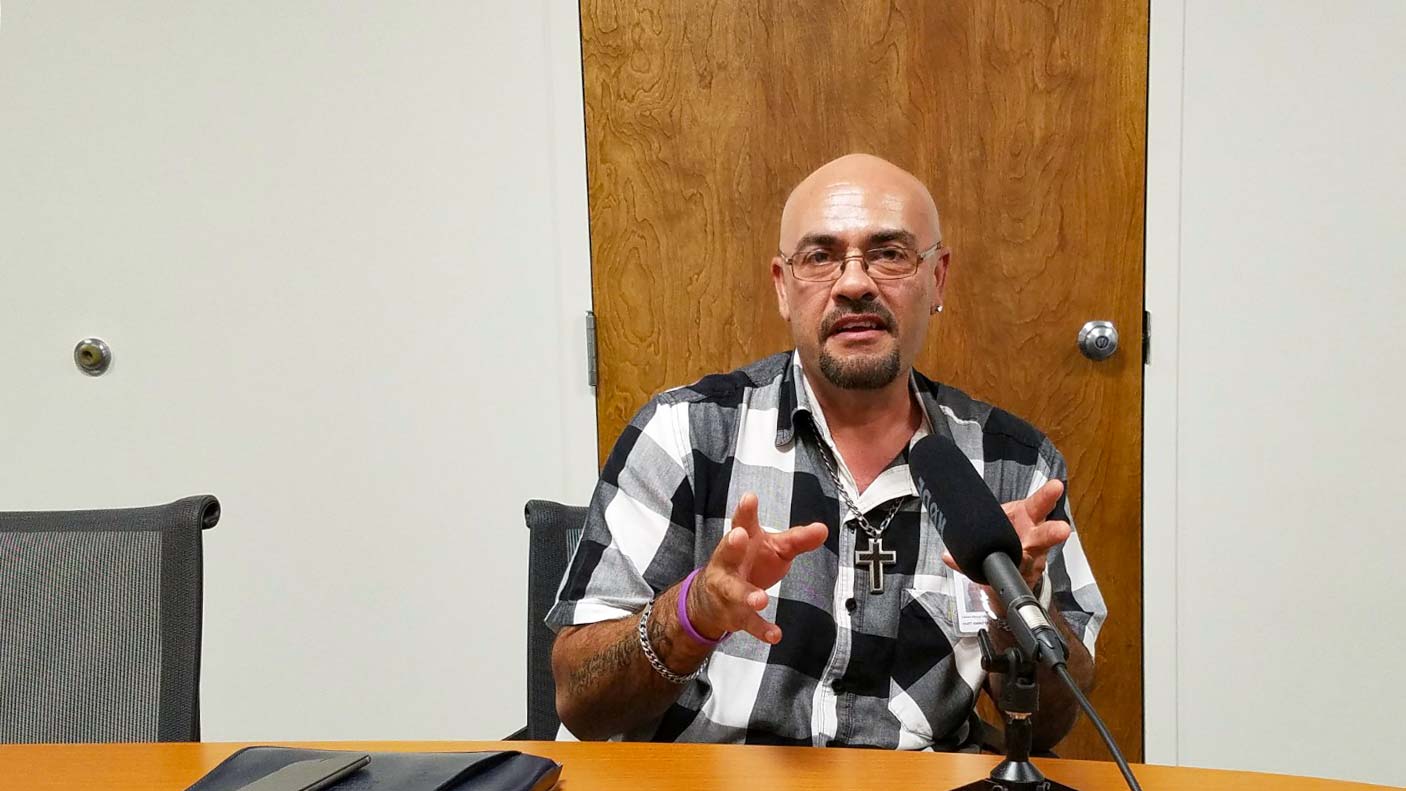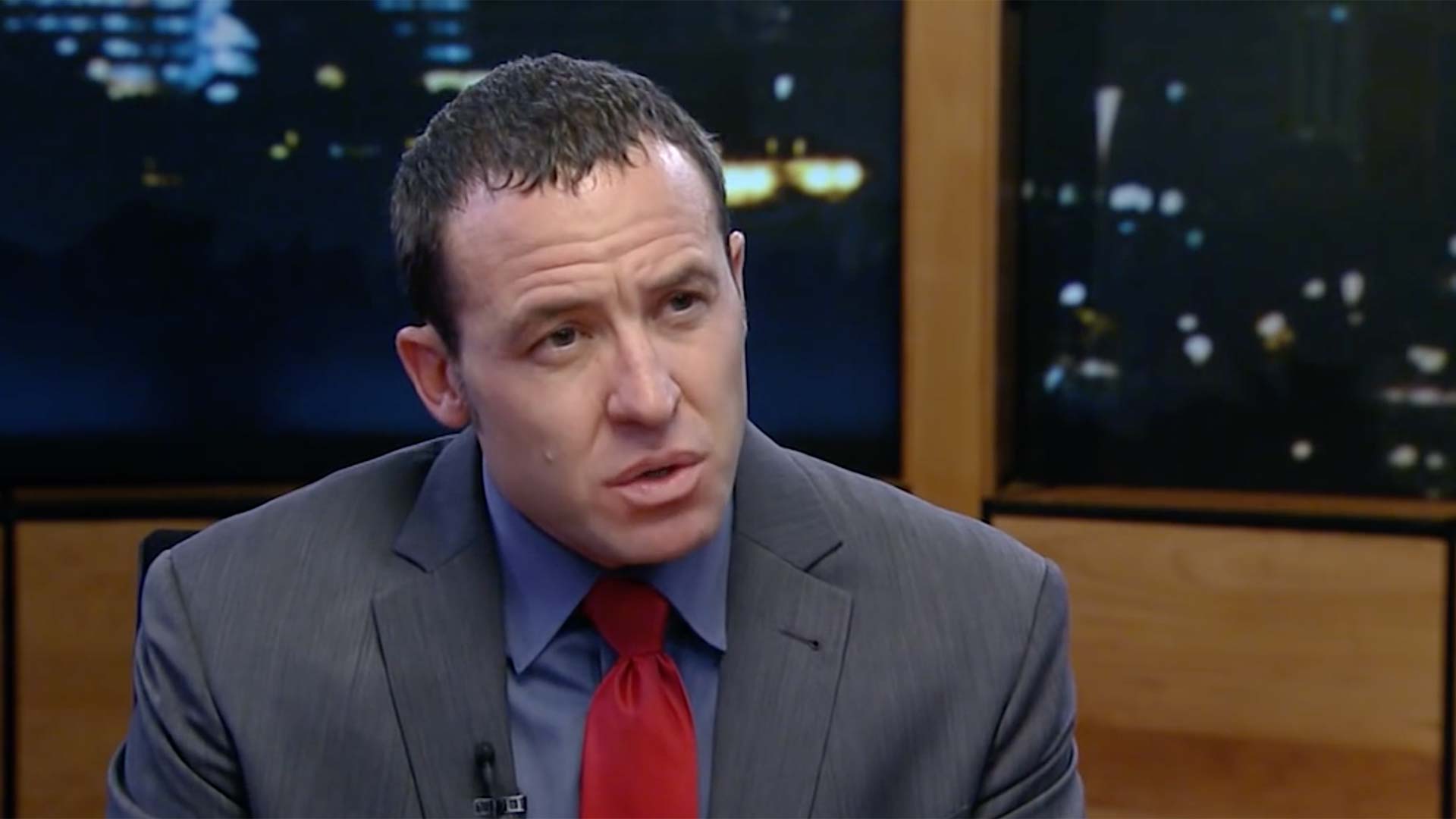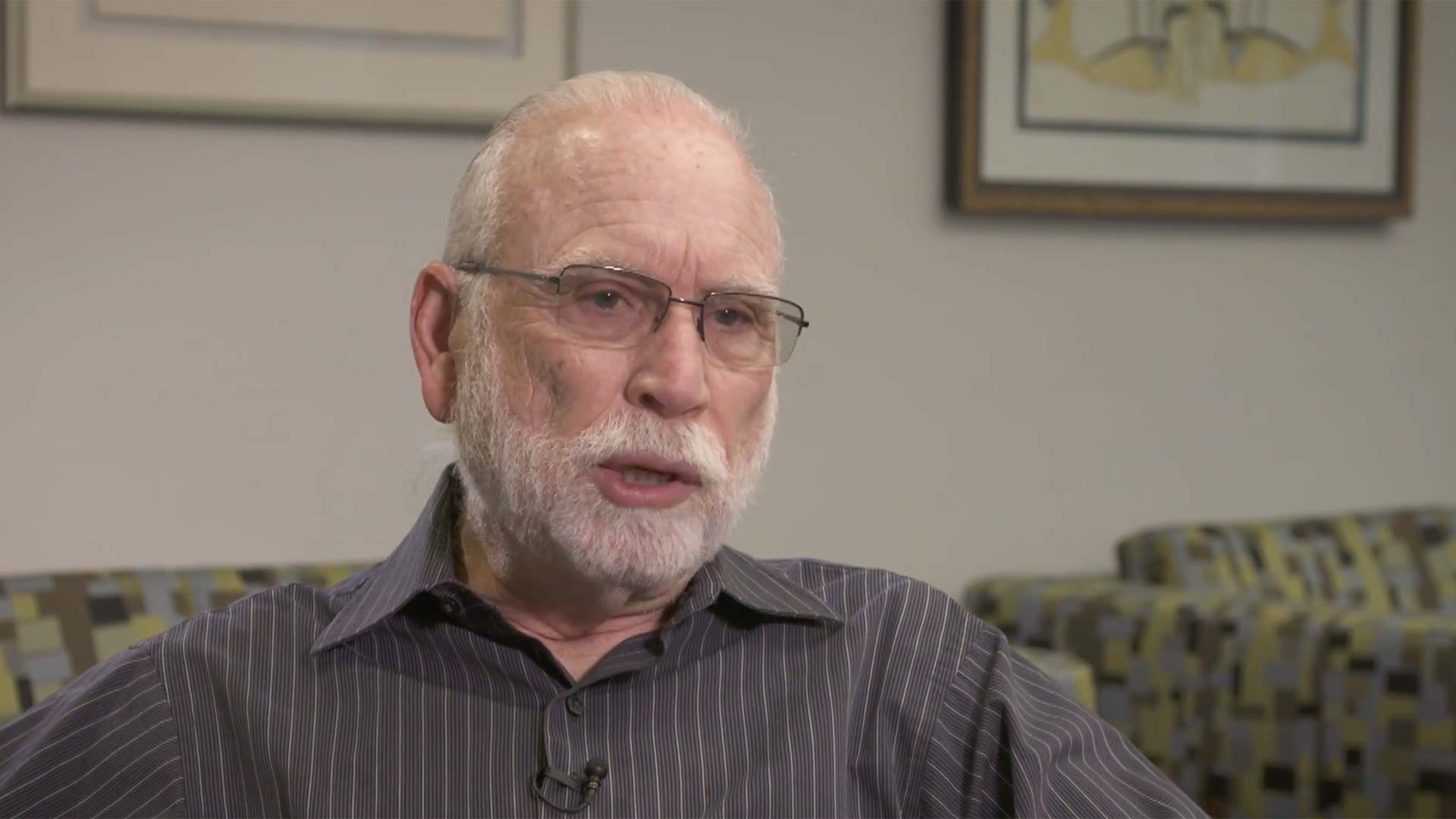 Manny Mejias served 20 years in prison and is now a re-entry coordinator for the Pima County's Criminal Justice Reform Unit.
Manny Mejias served 20 years in prison and is now a re-entry coordinator for the Pima County's Criminal Justice Reform Unit.Tomorrow is the deadline to register to vote in Arizona, but hundreds of thousands of people in Arizona have lost that right.
A common adage we use to describe people serving time in prison is that they are “paying their debt to society,” with an intimation that, once a person is released from prison, they have, in fact, paid their debt to society.
But in several states, once someone is convicted of a felony, they may lose their civil rights, including their right to vote, even once they’ve been released from prison. Arizona is one those states, and during the 2016 presidential election, 221,000 people were unable to vote in the state due to disenfranchisement laws.
Manny Mejias was convicted of murder at 15 and served 20 years in prison. He’s now a re-entry coordinator for the criminal justice reform unit in Pima County.
He says that he knew that he forfeited his right to vote after he was incarcerated, and restoring those rights wasn’t exactly top priority once he was released.
“When you first get released from prison your priorities are housing, your priorities are employment, your priorities are trying to put food in your stomach and clothes on your back,” he says.
Regardless of whether a person is interested in being able to vote right away, Pima County Public Defender Joel Feinman says they should understand their rights.
 Pima County Public Defender Joel Feinman.
Pima County Public Defender Joel Feinman.“In Arizona, when anybody's convicted of any felony they automatically lose all of their civil rights, including the right to vote. Now the first time somebody is convicted of a felony, technically their right to vote, along with her other civil rights, is restored automatically when they finish probation. But that doesn't always occur. When people are convicted of their second, third or fourth felony, then they have to petition the judge to get their civil rights and right to vote restored,” Feinman says.
The cost of restoration
Getting those rights restored can be really difficult, because if you don’t know how to navigate the paperwork or file motions on your own, you may have to get a lawyer. Even if you can afford a lawyer, Feinman says, there other things to consider.
“A lot of times clients have outstanding fines and fees even if they finish probation. These outstanding fines and fees can be 10-, 20-, 50-, $100,000, and judges sometimes will not restore people's rights to vote unless they pay off all of their outstanding fines and fees,” he says.
These fees get charged at every step of the legal system — from the courtroom, to prison, to probation.
“These outstanding fines and fees can be 10-, 20-, 50-, $100,000” — Joel Feinman, Pima County public defender.
Feinman, along with other legal professionals and organizations, has been working to restore voting rights to those who have lost them. Pima County Public Defense Services provides a free weekly service to anyone in Pima County who wants to restore their civil rights.
University of Arizona law professor Andy Silverman has been coordinating a rights restoration clinic in Tucson for over 12 years, and it has helped over 1,000 individuals restore their rights.
He says some of the people he sees don’t know that they can actually vote — because no one tells them.
 University of Arizona law professor Andy Silverman.
University of Arizona law professor Andy Silverman.“When I ask they’ll say, ‘Yes I have one felony conviction.’ And then I will explain to them about the automatic restoration statutes, and I would say just about all of them do not know about that. The lawyer that represented them initially, they don't talk to their clients about it. The sentencing judge doesn't mention anything about it. Or, if they're on probation, they're not told that,” he says.
Manny Mejias is ready to work toward restoring his civil rights, but he questions why all citizens wouldn’t have their rights restored upon release.
“If I'm not a full-fledged citizen afforded all the freedoms that a normal person is or that a regular person is, does that make me half of a citizen? Does that make me a second-class citizen? What's my designation? Because I’m not like everybody else. I have limitations,” he says.
"And if we have to admit that that is the case, do we live in a caste system here in the United States of America? And if we do, is this the land of the free and the home of the brave, or is it something else?”
Mejias said restoring his voting rights would be a giant step toward feeling like a full citizen again. And finally, then, maybe he would have paid his debt to society.

By submitting your comments, you hereby give AZPM the right to post your comments and potentially use them in any other form of media operated by this institution.